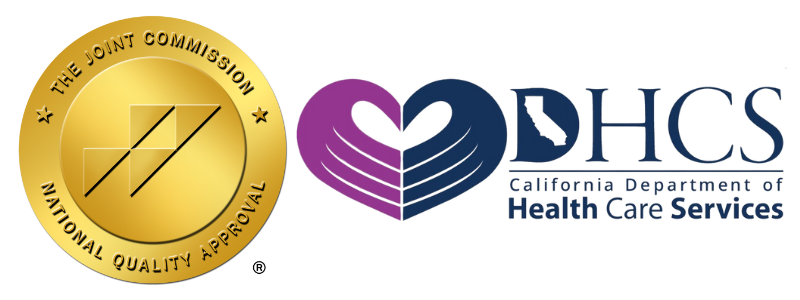Understanding Trauma-Informed Care in Mental Health Treatment
What is Trauma-Informed Care?
Trauma-informed care is an approach in mental health treatment that recognizes and responds to the impact of traumatic experiences on an individual’s life. It involves understanding, recognizing, and responding to the effects of all types of trauma. Trauma-informed care emphasizes physical, psychological, and emotional safety for both providers and survivors, and helps rebuild a sense of control and empowerment.
Key principles of trauma-informed care include:
- Safety: Ensuring that the treatment environment is safe for all individuals.
- Trustworthiness and Transparency: Building trust through clear and consistent communication.
- Peer Support: Utilizing the experiences of others who have gone through similar trauma.
- Collaboration and Mutuality: Emphasizing partnership between providers and clients.
- Empowerment, Voice, and Choice: Encouraging individuals to take an active role in their treatment.
- Cultural, Historical, and Gender Issues: Recognizing and addressing cultural, historical, and gender-related factors.
Importance of Trauma-Informed Care in Mental Health Treatment
Trauma-informed care is crucial in mental health treatment for several reasons. It acknowledges the widespread impact of trauma and understands potential paths for recovery. By integrating trauma-informed practices, we can improve the overall effectiveness of mental health treatment.
| Benefit | Description |
|---|---|
| Enhanced Safety | Creates a secure environment that promotes healing. |
| Improved Trust | Builds a strong therapeutic relationship through transparency. |
| Empowerment | Encourages individuals to take control of their recovery journey. |
| Reduced Retraumatization | Minimizes the risk of triggering past trauma during treatment. |
| Holistic Approach | Addresses the physical, emotional, and psychological needs of individuals. |
By prioritizing trauma-informed care, we ensure that our treatment programs are sensitive to the needs of trauma survivors. This approach not only enhances the effectiveness of mental health treatment but also fosters a supportive and healing environment for all individuals.
Our Approach at Mission Recovery Home
Incorporating Trauma-Informed Care
At Mission Recovery Home, we understand the profound impact that trauma can have on an individual’s mental health and overall well-being. Our approach to treatment is deeply rooted in trauma-informed care, ensuring that every aspect of our services is designed to support and empower those who have experienced trauma.
We incorporate trauma-informed care by:
- Training Staff: All our staff members receive comprehensive training in trauma-informed practices. This equips them with the knowledge and skills to recognize and respond to trauma-related issues effectively.
- Creating Safe Spaces: We prioritize creating a safe and supportive environment where individuals feel secure and respected. This includes both physical spaces and the emotional atmosphere we cultivate.
- Individualized Care Plans: Each person’s experience with trauma is unique. We develop personalized treatment plans that address the specific needs and circumstances of each individual.
- Collaborative Approach: We involve individuals in their own treatment planning, ensuring that their voices are heard and their preferences are respected.
Benefits of Trauma-Informed Care in Our Treatment Programs
The implementation of trauma-informed care in our treatment programs offers numerous benefits, enhancing the overall effectiveness of our services. These benefits include:
| Benefit | Description |
|---|---|
| Improved Trust | By fostering a safe and supportive environment, we build trust between clients and staff, which is crucial for effective treatment. |
| Reduced Retraumatization | Our trauma-informed approach minimizes the risk of retraumatization, ensuring that individuals feel safe and respected throughout their treatment journey. |
| Enhanced Engagement | Clients are more likely to engage in their treatment plans when they feel understood and supported, leading to better outcomes. |
| Holistic Healing | Trauma-informed care addresses the whole person, considering the physical, emotional, and psychological impacts of trauma. |
| Empowerment | We empower individuals by involving them in their treatment decisions, promoting a sense of control and autonomy. |
By prioritizing trauma-informed care, we ensure that our clients receive the compassionate and effective support they need to heal and thrive. Our commitment to this approach underscores our dedication to providing the highest quality of care for those seeking recovery from addiction and mental health challenges.
Creating a Safe Environment
At Mission Recovery Home, we understand the importance of creating a safe and supportive environment for individuals undergoing mental health treatment. Our trauma-informed care approach is designed to establish trust and safety while empowering individuals through compassionate practices.
Establishing Trust and Safety
Establishing trust and safety is a fundamental aspect of trauma-informed care in mental health treatment. We prioritize creating an environment where individuals feel secure and respected. This involves:
- Consistent Communication: We maintain open and honest communication with our clients, ensuring they are informed and involved in their treatment plans.
- Confidentiality: We uphold strict confidentiality to protect the privacy of our clients, fostering a sense of security.
- Physical Safety: Our facilities are designed to be safe and welcoming, with measures in place to prevent any form of harm or discomfort.
| Key Elements | Description |
|---|---|
| Consistent Communication | Open and honest dialogue with clients |
| Confidentiality | Protecting client privacy |
| Physical Safety | Safe and welcoming facilities |
Empowering Individuals Through Trauma-Informed Practices
Empowering individuals is a core principle of our trauma-informed care approach. We believe in providing clients with the tools and support they need to take control of their recovery journey. Our practices include:
- Client-Centered Care: We tailor our treatment plans to meet the unique needs and preferences of each individual, ensuring they are active participants in their care.
- Strength-Based Approach: We focus on the strengths and resilience of our clients, helping them build confidence and self-efficacy.
- Education and Resources: We provide education on trauma and its effects, as well as resources for coping and healing.
| Empowerment Practices | Description |
|---|---|
| Client-Centered Care | Tailored treatment plans |
| Strength-Based Approach | Focus on client strengths and resilience |
| Education and Resources | Information on trauma and coping strategies |
By establishing trust and safety and empowering individuals through trauma-informed practices, we create a supportive environment that promotes healing and recovery. At Mission Recovery Home, our commitment to trauma-informed care ensures that every client receives the compassionate and effective treatment they deserve.
Healing Trauma Through Therapy
Therapeutic Techniques for Trauma Recovery
At Mission Recovery Home, we employ a variety of therapeutic techniques to aid in trauma recovery. Our trauma-informed care in mental health treatment focuses on understanding, recognizing, and responding to the effects of all types of trauma. Here are some of the key therapeutic techniques we use:
- Cognitive Behavioral Therapy (CBT): Helps individuals identify and change negative thought patterns and behaviors.
- Eye Movement Desensitization and Reprocessing (EMDR): Assists in processing and integrating traumatic memories.
- Dialectical Behavior Therapy (DBT): Combines cognitive-behavioral techniques with mindfulness strategies.
- Somatic Experiencing: Focuses on the body’s sensations to release trauma stored in the body.
- Narrative Therapy: Encourages individuals to reframe their experiences and create a new narrative.
Individualized Treatment Plans for Trauma Survivors
We understand that each individual’s experience with trauma is unique. Therefore, we create personalized treatment plans tailored to the specific needs of each trauma survivor. Our approach ensures that every aspect of the individual’s mental health is addressed, promoting holistic healing.
| Treatment Plan Component | Description |
|---|---|
| Assessment | Comprehensive evaluation of the individual’s trauma history and mental health status. |
| Goal Setting | Collaborative process to establish short-term and long-term recovery goals. |
| Therapy Sessions | Regular individual and group therapy sessions using appropriate therapeutic techniques. |
| Support Services | Access to additional support such as family therapy, peer support groups, and educational workshops. |
| Progress Monitoring | Ongoing assessment and adjustment of the treatment plan to ensure effective progress. |
Our commitment to trauma-informed care in mental health treatment ensures that we provide a safe, supportive, and empowering environment for all individuals seeking recovery. By utilizing evidence-based therapeutic techniques and creating individualized treatment plans, we help trauma survivors on their journey to healing and long-term recovery.
Supporting Long-Term Recovery
Aftercare and Continued Support
At Mission Recovery Home, we understand that recovery from trauma and mental health issues is an ongoing process. Aftercare and continued support are essential components of our trauma-informed care approach. We provide a range of services to ensure that individuals have the resources they need to maintain their progress and prevent relapse.
Our aftercare programs include:
- Regular Follow-Up Sessions: Scheduled appointments with therapists to monitor progress and address any emerging issues.
- Support Groups: Peer-led groups that offer a safe space for sharing experiences and receiving encouragement.
- Family Counseling: Sessions designed to help families understand trauma and support their loved ones effectively.
- Crisis Intervention: Immediate support for individuals experiencing a crisis to prevent setbacks.
| Aftercare Service | Frequency | Duration |
|---|---|---|
| Follow-Up Sessions | Weekly/Bi-weekly | 1 hour |
| Support Groups | Weekly | 1.5 hours |
| Family Counseling | As needed | 1 hour |
| Crisis Intervention | 24/7 | As needed |
Community Resources for Trauma Survivors
We believe in the power of community support in the recovery journey. Connecting individuals with community resources is a key part of our trauma-informed care strategy. These resources provide additional layers of support and help individuals build a network of care.
Community resources include:
- Local Support Groups: Groups that focus on trauma recovery and mental health, providing peer support and shared experiences.
- Educational Workshops: Programs that offer information on coping strategies, stress management, and self-care.
- Employment Assistance: Services that help individuals find and maintain employment, which can be a crucial part of recovery.
- Housing Assistance: Resources that provide safe and stable housing options for those in need.
| Community Resource | Availability | Contact Information |
|---|---|---|
| Local Support Groups | Weekly | Provided upon enrollment |
| Educational Workshops | Monthly | Provided upon enrollment |
| Employment Assistance | Ongoing | Provided upon enrollment |
| Housing Assistance | Ongoing | Provided upon enrollment |
By offering comprehensive aftercare and connecting individuals with valuable community resources, we aim to support long-term recovery and empower trauma survivors to lead fulfilling lives. Our commitment to trauma-informed care in mental health treatment ensures that every individual receives the compassionate and effective support they need.








